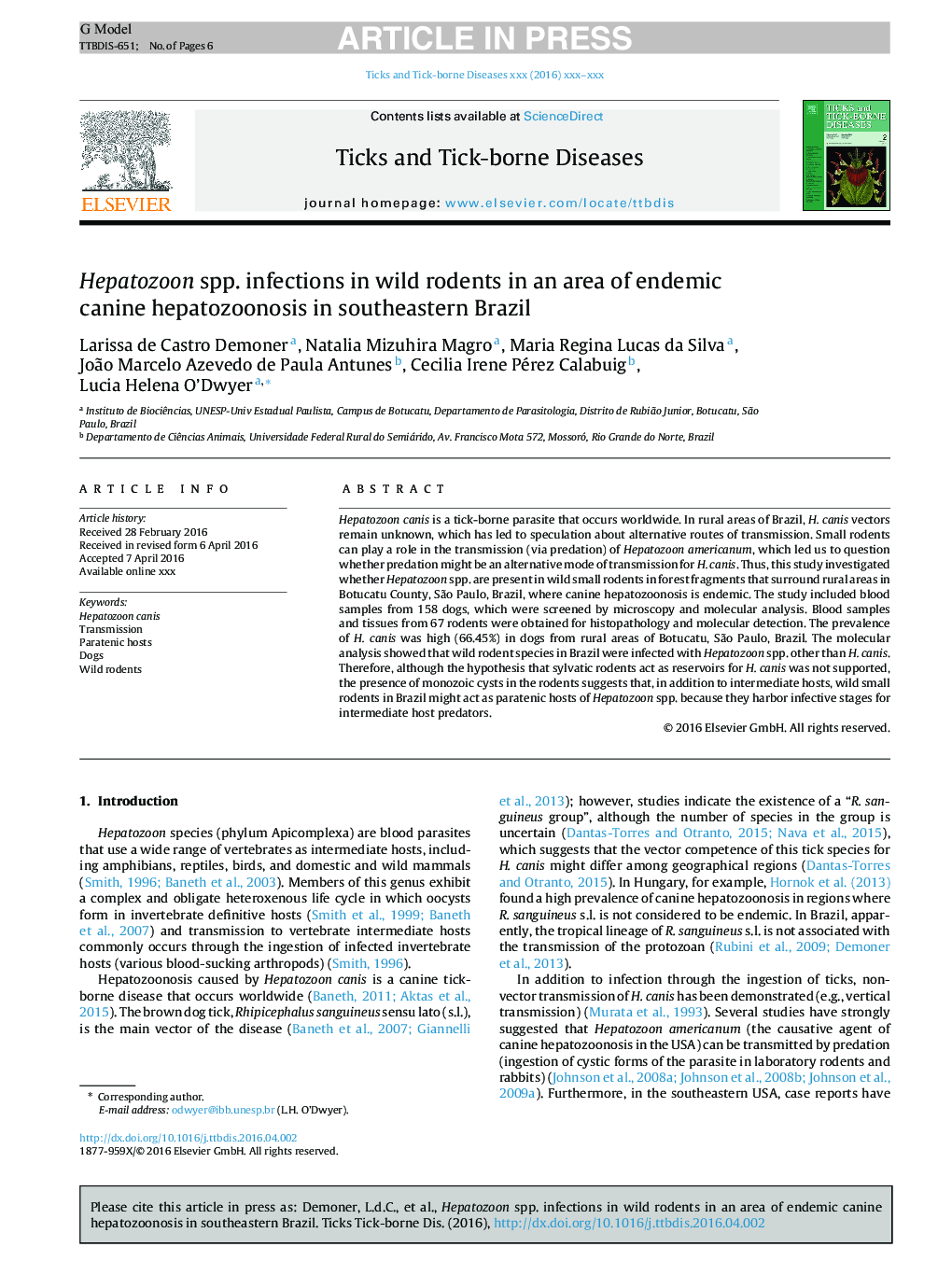| Article ID | Journal | Published Year | Pages | File Type |
|---|---|---|---|---|
| 5546403 | Ticks and Tick-borne Diseases | 2016 | 6 Pages |
Abstract
Hepatozoon canis is a tick-borne parasite that occurs worldwide. In rural areas of Brazil, H. canis vectors remain unknown, which has led to speculation about alternative routes of transmission. Small rodents can play a role in the transmission (via predation) of Hepatozoon americanum, which led us to question whether predation might be an alternative mode of transmission for H. canis. Thus, this study investigated whether Hepatozoon spp. are present in wild small rodents in forest fragments that surround rural areas in Botucatu County, São Paulo, Brazil, where canine hepatozoonosis is endemic. The study included blood samples from 158 dogs, which were screened by microscopy and molecular analysis. Blood samples and tissues from 67 rodents were obtained for histopathology and molecular detection. The prevalence of H. canis was high (66.45%) in dogs from rural areas of Botucatu, São Paulo, Brazil. The molecular analysis showed that wild rodent species in Brazil were infected with Hepatozoon spp. other than H. canis. Therefore, although the hypothesis that sylvatic rodents act as reservoirs for H. canis was not supported, the presence of monozoic cysts in the rodents suggests that, in addition to intermediate hosts, wild small rodents in Brazil might act as paratenic hosts of Hepatozoon spp. because they harbor infective stages for intermediate host predators.
Related Topics
Life Sciences
Agricultural and Biological Sciences
Animal Science and Zoology
Authors
Larissa de Castro Demoner, Natalia Mizuhira Magro, Maria Regina Lucas da Silva, João Marcelo Azevedo de Paula Antunes, Cecilia Irene Pérez Calabuig, Lucia Helena O'Dwyer,
